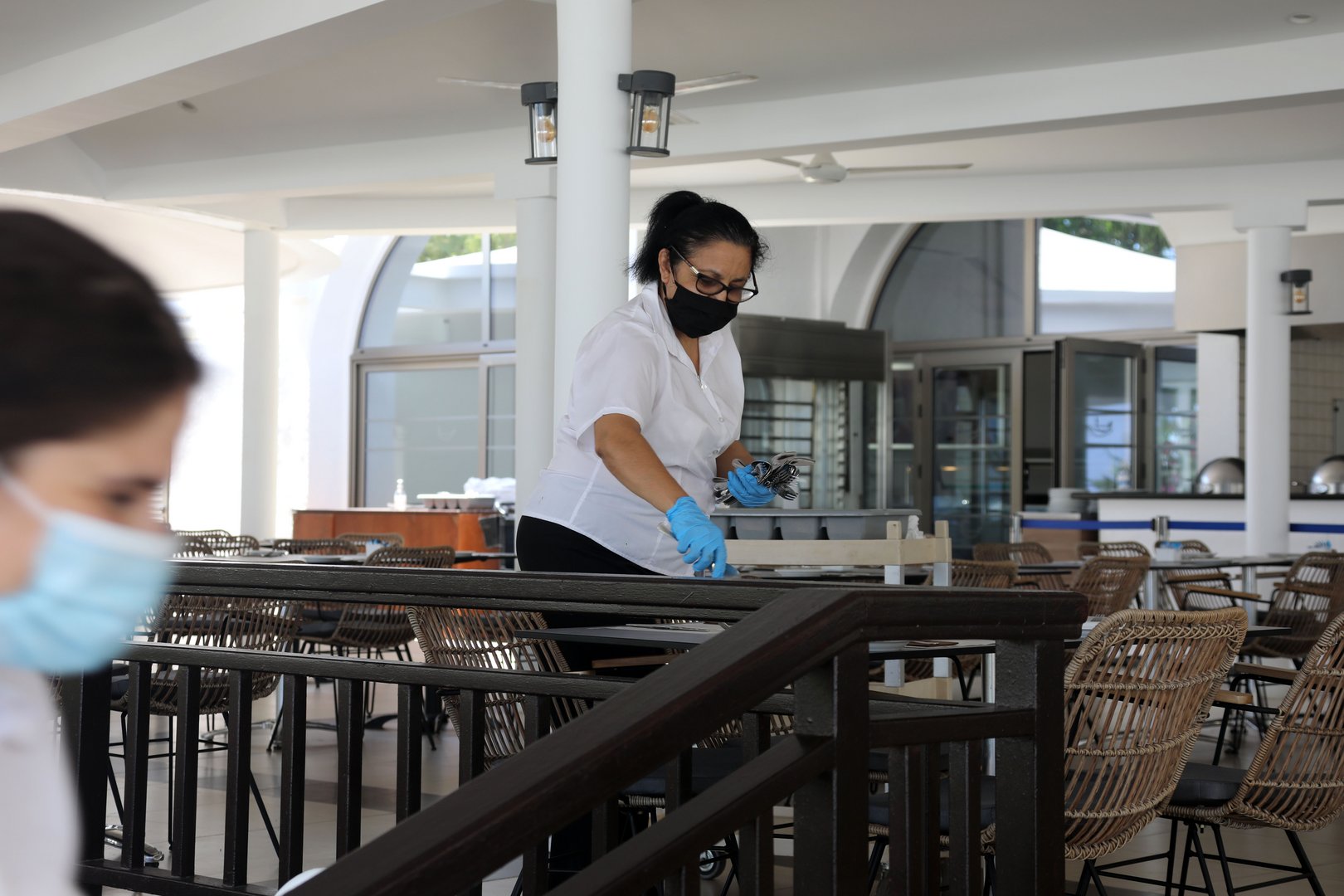Exodus of EU workers leave hotels, retail and restaurants struggling
Acute labour shortages that ended when Cyprus joined the EU in 2004 have reappeared because of the pandemic and the uncertainty it fuelled through lockdowns and ongoing restrictions.
The Employers and Industrialists Federation told the Cyprus Mail this week that the main reason was that many EU workers had returned home in the wake of the uncertainties caused by the pandemic.
So bad have the shortages become that one hotel in Ayia Napa is operating with 190 staff instead of the usual 330.
While it seems paradoxical for businesses to be unable to find workers at a time of economic slowdown, the problem is considered so pressing that it was discussed at a meeting of employers’ organisations, unions and the labour minister three weeks ago.
As a relief measure, Labour Minister Zeta Emilianidou issued a decree increasing the number of sectors in which third country students could work part-time. These included hotels, restaurants, manufacturing units among other businesses, all of which were having difficulty finding staff.
Hoteliers were the most vociferous about the shortages, claiming their units were struggling to operate with just 60 per cent of their required staff. One manager who has worked in the sector for more than 25 years and is involved in the management of three big hotels, said hotels were facing a “huge problem” with some opening a limited number of floors in order to cope with the inability to find staff.
Michalis Antoniou, the general manager of the Employers and Industrialists Federation (OEV), said shortages were being experienced in most sectors, not just in hotels, as the decree issued by the labour minister showed.
“It is not just hotels that are having difficulty finding staff, but also the retail sector, restaurants, manufacturing, and many more,” he told the Cyprus Mail. He believes the main reason for the shortages is the exodus of EU workers.
Although there is no accurate estimate of how many have left, it suffices to say that during the good years (until 2019) there may have been as many as 100,000 EU nationals working in Cyprus. If half of those left because of the pandemic, the shortages would have been felt throughout the economy.
“It was difficult for EU workers to stay here during the pandemic,” Antoniou said. “They may have received 60 per cent of their wage through the government support schemes, but their living expenses, such as rent, food and transport remained the same, and there was also the uncertainty of when they would be able to return to their jobs.”
Marios Panteli, general manager of the Atlantica Aeneas Resort in Ayia Napa, one of the biggest tourist establishments in Cyprus, also attributed the staffing shortages faced by the hotels to the uncertainty caused by the pandemic and the measures taken by governments here and abroad.
The uncertainty may have forced many hotel workers to seek employment in other sectors and foreigners to return to their countries. The pandemic was also the reason that those who would come and work for the summer months and leave at the end of the tourist season, did not show up this year.
“Now almost all hotels are operating with 40 per cent fewer workers than normal,” said Panteli, explaining that Aeneas, which has a guest capacity of 1300, is operating with 190 staff instead of the usual 330.
“This year, we could not hire all the staff we needed in April, to prepare for the season because of the uncertainty over when the restrictions would be lifted and when the tourist season would begin, so we adopted a more conservative policy on staffing,” said Panteli. “We did not know when we would open and what occupancy rates we would have.”
The hotel may have lost touch with some of its staff as it stayed closed last year, but Panteli was of the view that the caution was justified by what happened. The minimum 40 per cent occupancy necessary for a hotel to operate took some time to achieve.
“We started with very low occupancy rates, as we only had Russian guests, so we could operate with a third of our permanent staff,” said Panteli. “We were waiting for the UK market to open, but this kept being put off until after the middle of July.”
Another hotel manager, who chose not to use his name, felt the pandemic had a big effect on people’s psychology, some losing their drive to work. “Some are collecting their allowances and are happy,” he said.
“There could be 60 cleaners collecting unemployment benefit because their hotels have not reopened, but they are not interested in coming and working at places that are open and looking for staff, because they are paid for doing nothing.”
He also felt there was a broader problem for the hotel industry, with regard to staffing, that was not Covid-related. “Fewer young people are interested in working in hotels today because it is hard and demanding work, during the tourist season, when they could do 12- or 14-hour days.”
Labour shortages will be the main issue of discussion at the meeting between social partners, scheduled for next month, but unions are expected to set conditions before they consent to any scheme allowing businesses hiring foreign workers from third countries in big numbers.
EU nationals, it appears, are not expected to return for work before the pandemic-related uncertainty is dispelled.







Click here to change your cookie preferences